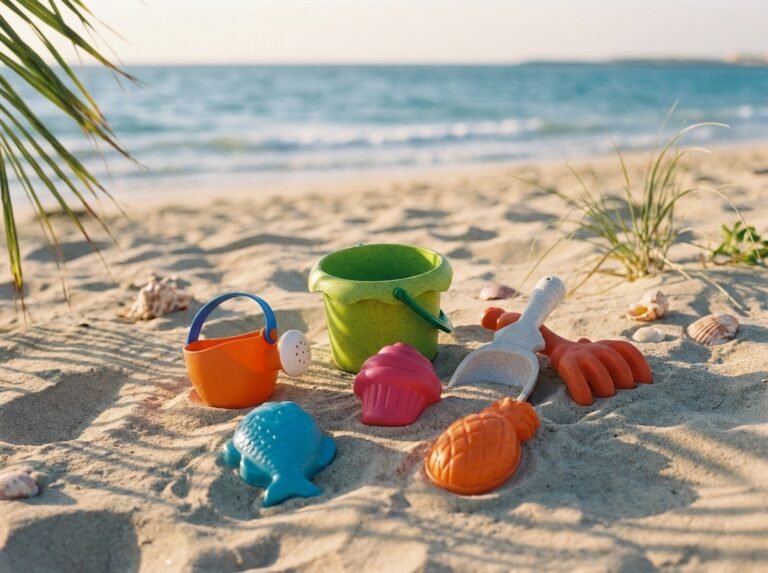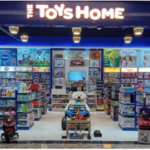The Benefits of Educational Toys for Children: Nurturing Cognitive, Social, and Emotional Development
Toys are more than just sources of entertainment for children; they are powerful tools for learning and development. Among the myriad of toys available, educational toys hold a special place for their ability to promote cognitive, social, and emotional growth in young minds. This comprehensive article will delve into the significant benefits of educational toys and how they contribute to a child’s holistic development.
Cognitive Development
Cognitive development refers to a child’s ability to think, reason, and solve problems. It forms the foundation for learning and encompasses various mental processes. Educational toys play a crucial role in enhancing cognitive skills in the following ways:
1. Problem-Solving Skills:
Educational toys such as puzzles, brain teasers, and building blocks are excellent tools for encouraging problem-solving. These toys challenge children to analyze situations, think critically, and find solutions independently. For instance, a jigsaw puzzle requires them to figure out how different pieces fit together to form a complete picture. This process sharpens their spatial reasoning and analytical thinking.
2. Spatial Awareness:
Toys that involve stacking, arranging, or fitting pieces together improve spatial awareness. This skill is essential for understanding size, shape, and symmetry concepts. Building wooden blocks or constructing intricate designs with magnetic tiles enhances a child’s spatial cognition and fine motor skills.
3. Math and Language Skills:
Educational toys often incorporate numbers, letters, and words. Playing with these toys introduces children to basic math and language concepts engagingly and enjoyably. For example, a set of number and letter magnets can help a child learn to count, recognize letters, and form simple words. These early interactions with mathematical and linguistic elements lay a strong foundation for their academic journey.
4. Creativity and Imagination:
Open-ended educational toys like art supplies, craft kits, and construction sets stimulate creativity and imagination. They encourage children to think outside the box, experiment with colors and shapes, and explore their artistic potential. When children can express themselves through creative Play, they develop problem-solving skills by approaching challenges with innovative solutions.
Social Development
Social development refers to the process of learning to interact with others effectively. It encompasses many skills and abilities that enable children to navigate social situations and build relationships. Educational toys play a pivotal role in fostering social development:
1. Cooperation and Communication:
Board games, group puzzles, and cooperative playsets teach children the value of cooperation, teamwork, and effective communication. These toys require children to work together, share ideas, and strategize as a team. In doing so, they learn the importance of listening, expressing their thoughts clearly, and respecting the opinions of others. Games like “Snakes and Ladders” or “Ludo” encourage friendly competition while strengthening social bonds.
2. Empathy and Understanding:
Toys that involve role-playing or doll play enable children to understand and express emotions. By imagining themselves in different roles and scenarios, they develop empathy and a deeper understanding of human emotions. Whether nursing a toy baby doll or creating imaginative designs with action figures, these experiences teach children to relate to other’s feelings and perspectives.
3. Sharing and Taking Turns:
Playing with siblings or peers using educational toys often involves sharing and taking turns. These social interactions are valuable life lessons that teach children to consider the needs and feelings of others. Learning to share a toy or patiently wait for their turn in a game helps children develop social skills essential for building positive relationships.
Emotional Development
Emotional development is critical to a child’s growth, focusing on their ability to recognize, understand, and manage their emotions. Educational toys contribute significantly to emotional development:
1. Building Confidence:
Success in solving puzzles, completing challenges, or mastering a new skill with educational toys boosts a child’s self-confidence and sense of achievement. When they see the results of their efforts, they gain the confidence to tackle more complex tasks and challenges in the future.
2. Emotional Expression:
Toys that allow children to express themselves through art, storytelling, or imaginative Play provide a healthy outlet for emotions and feelings. Creative toys like drawing kits, craft supplies, and role-playing sets encourage children to communicate their thoughts, fears, and joys safely and constructively.
3. Emotional Regulation:
Educational toys can help children learn to manage and regulate their emotions. Children can process and understand various emotional states through role-playing scenarios or storytelling with dolls and action figures. They learn to identify and cope with feelings of happiness, frustration, sadness, and anger in a controlled and supportive environment.
Encouraging Lifelong Learning
The benefits of educational toys extend far beyond childhood; they lay the groundwork for lifelong learning and development. Children who engage with educational toys develop a love for learning and a natural curiosity about the world around them. This curiosity becomes a driving force that encourages them to seek knowledge and explore new ideas throughout their lives.
Educational toys promote a growth mindset, which is the belief that abilities and intelligence can be developed with effort and persistence. This mindset encourages children to embrace challenges, learn from failures, and continuously strive for improvement. It equips them with the resilience and determination to overcome obstacles and achieve their goals.
The Role of Parents and Caregivers
While educational toys are powerful learning tools, the role of parents and caregivers is equally crucial in maximizing their benefits. Here are some tips for parents and caregivers:
1. Be Observant:
Please pay attention to your child’s interests, strengths, and areas where they need more support. Choose educational toys that align with their current developmental stage and cater to their needs.
2. Encourage Play:
Encourage your child to engage in open-ended Play with educational toys. Allow them to explore and experiment, even if it means making a mess or trying different approaches to solving a problem.
3. Join In:
Participate in playtime with your child. Whether building a tower with blocks or solving a puzzle together, your involvement fosters a strong connection and shared enjoyment.
4. Balance Screen Time:
While educational apps and digital games can be valuable, aim for a healthy balance between screen time and hands-on Play with educational toys. Physical Play promotes sensory experiences and social interactions that screens cannot replicate.
5. Create Learning Opportunities:
Use educational toys as a springboard for learning experiences. For example, if your child is playing with a toy kitchen set, use it as an opportunity to teach them about cooking, nutrition, and measuring ingredients.
6. Be Patient:
Allow your child to explore educational toys at their own pace. Be patient with their progress and celebrate their achievements, no matter how small. Remember that every child is unique, and development varies from one individual to another.
The Importance of Toy Safety
While educational toys offer numerous benefits, it’s essential to prioritize toy safety. Always select age-appropriate toys free from small parts that could pose choking hazards. Look for toys that meet safety standards and are made from non-toxic materials.
Educational toys are not just playthings; they are invaluable tools for nurturing children’s cognitive, social, and emotional development. They provide a balanced and enjoyable approach to learning, fostering skills that will serve children well throughout their lives. As parents, caregivers, and educators,we can harness the power of educational toys to support children on their journey of discovery, helping them develop into well-rounded individuals who are equipped to face the challenges and joys of life. So, next time you choose a toy for a child, consider the educational value it can bring to their world. Through educational toys, we can empower the next generation with the knowledge, skills, and confidence to thrive in an ever-changing world.





